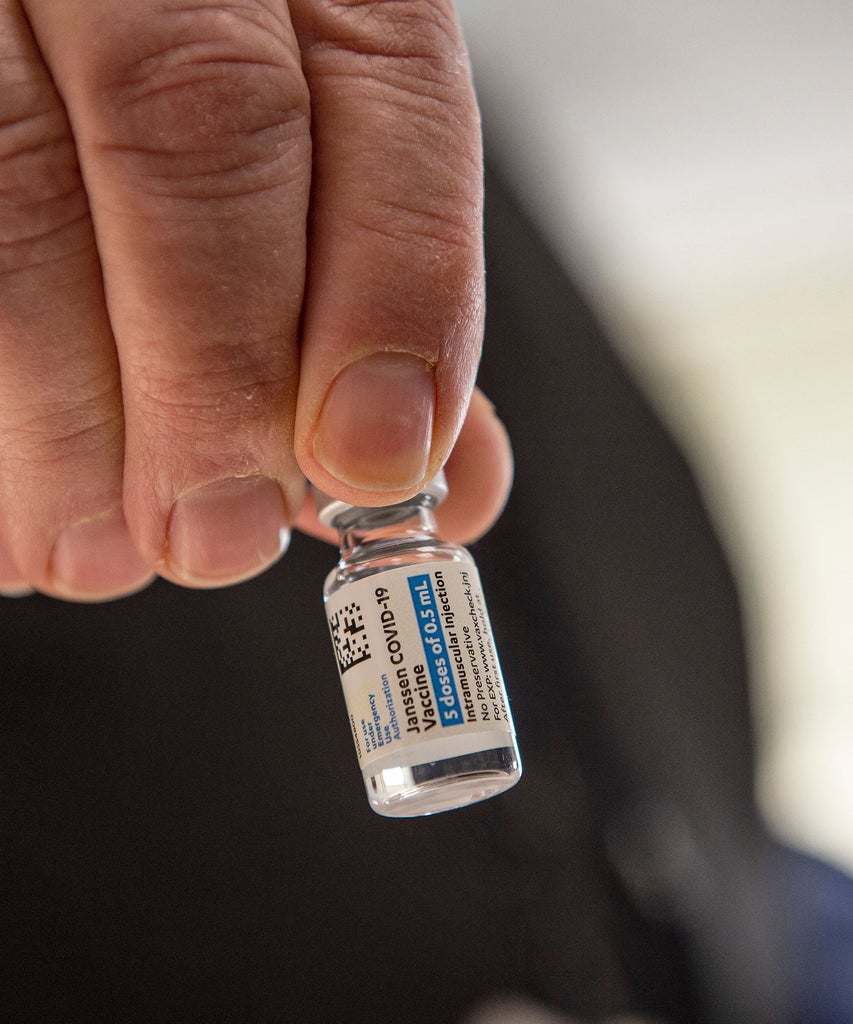
On April 7, the 22-year-old daughter of Jill Grimes, MD, received the Johnson & Johnson vaccine. She was one of about seven million Americans to get it. About a week later, on April 13, federal health agencies halted the U.S. rollout of the single-dose shot, as regulators worked to investigate six cases of rare blood-clotting complications that occurred within three weeks of inoculation. One person has died, and another is in critical condition. But Dr. Grimes, a family physician based in Texas, isn’t losing any sleep.
“The odds of this happening to her are less than one in a million. The risk of being struck by lighting is higher than that,” Dr. Grimes says. So are the odds of dying from COVID-19, which has killed more than 560,000 people in the U.S. to date. But news of the pause may have caused folks who’ve had the shot — or who love someone who got it — to panic unnecessarily, says Paul Pottinger, MD, a professor specializing in infectious disease at the University of Washington School of Medicine.
Not everyone believes the increased concern is completely negative, however. “It was anticipated when this news went out that there would be some calls to doctor’s offices and maybe even some visits to emergency rooms and clinics with patients who have one symptom or another — and that’s a good thing,” says William Schaffner, MD, a professor of preventive medicine and infectious diseases at Vanderbilt University Medical Center. While most of these visits will turn out to be nothing, he says that the fact that the J&J news has been so widely publicized will make patients and doctors more likely to catch and properly treat any issues early.
people freaking out about the J&J vaccine as if they think they’re 1 in 1.13 million special ✨
— DYLAN (@training_d4d) April 13, 2021
Some experts agree with Dr. Schaffner that the CDC’s and FDA’s caution and transparency around side effects and potential risks of the J&J shot are net-positive. That it means our vaccine safety tracking systems are working as they should. But others worry that an extended pause of the J&J shot will only fuel already widespread vaccine hesitancy, and deter some people from getting any COVID-19 vaccine, including the mRNA options. That would be troublesome.
“You could argue you have a greater chance of dying driving to get this vaccine,” Paul Offit, MD, director of the Vaccine Education Center and an attending physician in the division of infectious diseases at Children’s Hospital of Philadelphia, says of the odds of experiencing the blood-clotting condition post-jab. “But when you say, ‘One in million,’ all people hear is, ‘This could happen to me, and now I’m getting the sense that this is serious enough that I shouldn’t get the vaccine.’”
As the CDC goes about being abundantly cautious, if you happened to get the J&J vaccine and are freaking out, please reassure yourself that any possible connection to blot clots is fleetingly rare, and you are going to be fine.
— Daniel Summers, MD (@WFKARS) April 13, 2021
On Friday, Johnson & Johnson released a statement emphasizing there’s not enough information to know for sure whether the ultra-rare blood clotting issue (which involves a combination of a cerebral venous sinus thrombosis and low platelet counts, known as thrombocytopenia) is directly caused by the vaccine. Dr. Schaffner, on the other hand, says: “Given the data we have now about J&J and the similar data we have from Astrazeneca, because the two vaccines are made in very similar ways, I think there’s not much doubt that the vaccines are causally related to these very, very rare events.”
Regardless, for now the pause is ongoing. The CDC advisory committee will meet again on April 23 to review the available data and decide how to move forward. And as we wait for more information to come to light, experts are urging us to stay calm.
Everyone should be aware of the symptoms of the blood clotting issue in question, Dr. Schaffner says. If you’ve had the J&J vaccine in the past three weeks and experience pain or swelling in your legs, pain in your abdomen, difficulty breathing, or a severe headache, call your doctor and tell them you’ve had the J&J vaccine recently and are experiencing these issues, he suggests. But it’s essential to understand that this complication is highly unlikely to occur, he adds. If you’re not vaccinated yet and are eligible, schedule an appointment to receive an mRNA vaccine.
As Dr. Grimes says, “We don’t want to diminish anyone’s fear, but to encourage them to have perspective.”
Like what you see? How about some more R29 goodness, right here?
Your COVID Vaccine Side Effect Questions, Answered
What Will Happen To You J&J Vaccine Appointment
Had the Johnson & Johnson Vaccine? Don't Panic
from Refinery29 https://ift.tt/2RG9cOG
via IFTTT
